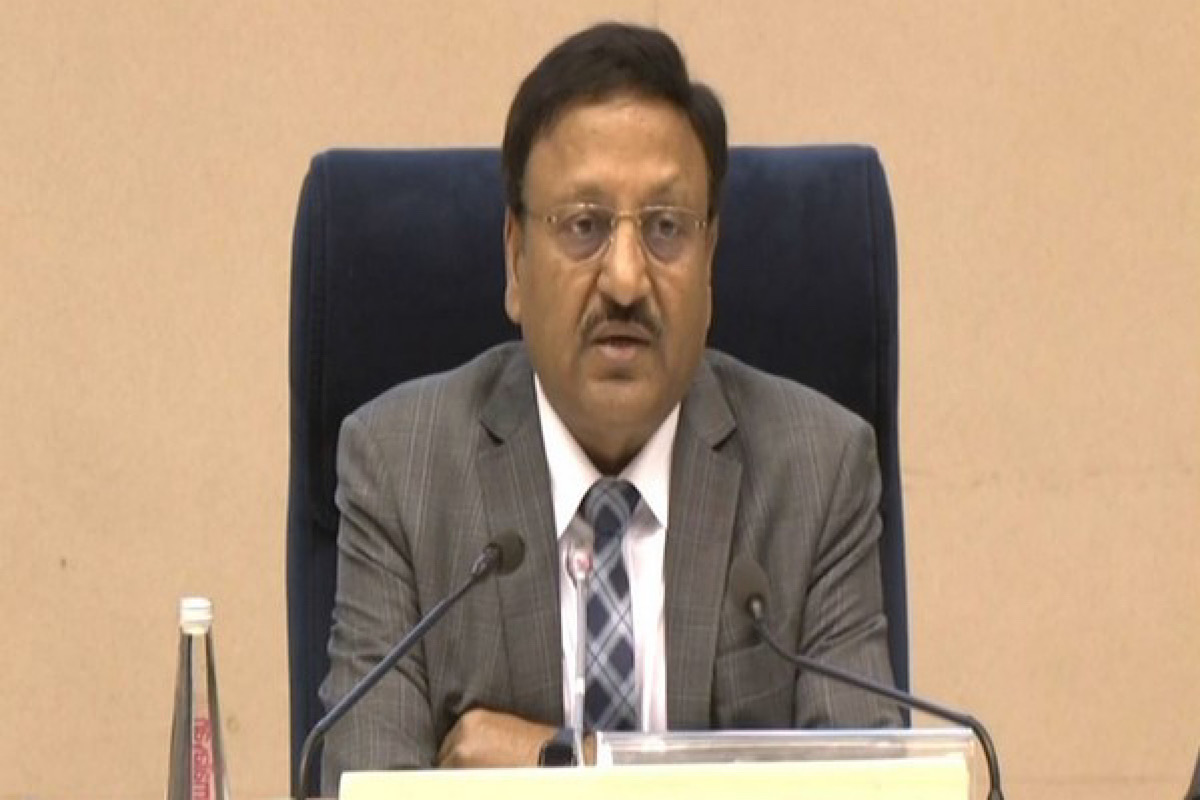Gyanesh Kumar takes charge as Chief Election Commissioner
Gyanesh Kumar took over as the 26th Chief Election Commissioner (CEC) on Wednesday and said the Election Commission of India was, is and will always be with the voters.
The CEC made the statement while addressing 75 delegates from 23 countries, who are in India to witness the Lok Sabha elections as part of the international Election Visitors’ Programme (IEVP).

Chief election Commissioner Rajiv Kumar [File Photo:ANI]
Chief Election Commissioner (CEC) Rajiv Kumar said here on Sunday that the contribution of the Indian electoral space and work done by the Election Commission of India (ECI) hold a significant portion of the world democratic space.
The CEC made the statement while addressing 75 delegates from 23 countries, who are in India to witness the Lok Sabha elections as part of the international Election Visitors’ Programme (IEVP).
Advertisement
In terms of the process and capacity, it generates what can be legitimately called ‘democratic surpluses’ is of a huge significance in the otherwise growing concerns of shrinkage of or decline of democratic spaces worldwide, he said.
Advertisement
Stating that the Indian electoral space is unique, as neither electoral registration is compulsory nor voting is mandatory, the CEC said, “Therefore, the ECI is required to operate in an entirely persuasive space, inviting the citizens to volunteer to become part of electoral roll and, thereafter, through systematic voter awareness programme, to motivate them to exercise their franchise.”
“It would be axiomatic to say that the credibility of the processes that we undertake is validated through the sheer turnout at elections and the near saturation of electoral rolls in terms of elector-population ratio,” he said.
Commenting on the scale of the electoral exercise in India, the CEC said, “A 970 million strong electorate will be welcomed by over 15 million polling personnel at over 1 million polling stations spread across the country. ”
He said that diversity of the nation’s electorate can be witnessed in its full expression by the visiting delegates at the polling stations.
On the sidelines of the event, the Commission also held bilateral interactions with the Chief Election Commissioners of Kazakhstan, Uzbekistan, and Nepal along with their delegation.
Earlier in the day, the delegates were briefed on various aspects of Indian General Elections including EVM-VVPAT, IT initiatives, role of media and social media.
The delegates will split into groups to visit six states—Maharashtra, Goa, Gujarat, Karnataka, Madhya Pradesh, and Uttar Pradesh to observe polls and related preparedness in various constituencies.
The general elections are being held in seven phases between 19th April and 1st June. The first phase of polling was held on 19th April and second phase on 26th April. The results will be declared on 4th June.
Advertisement